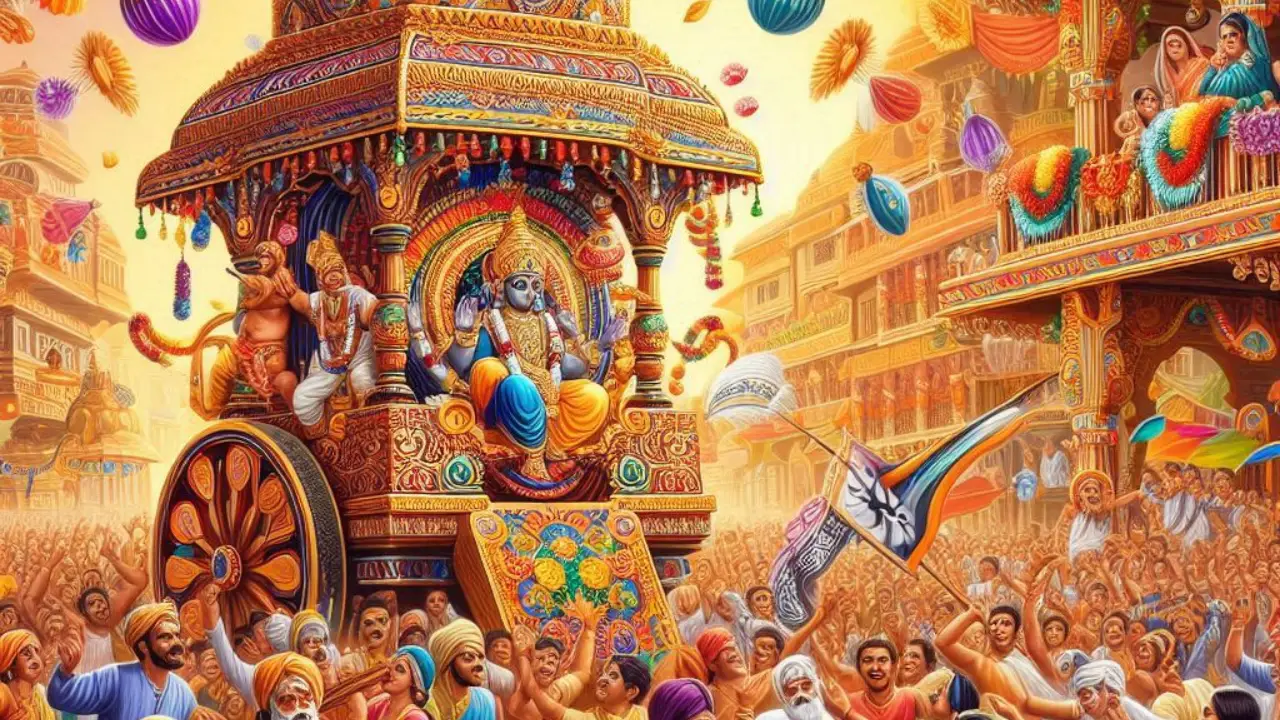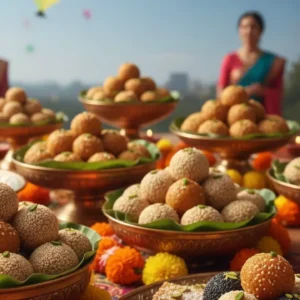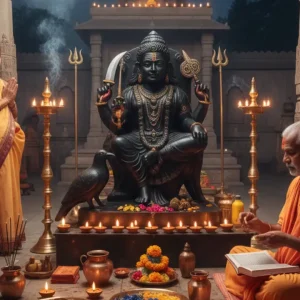Aashadhi Ekadashi, a vibrant and spiritually significant festival, is eagerly awaited by millions of devotees across India. Celebrating this auspicious day dedicated to Lord Vishnu marks a pivotal moment in the Hindu calendar, observed with unparalleled fervor and devotion.
The Significance of Aashadhi Ekadashi
Aashadhi Ekadashi falls on the 11th day of the bright fortnight of the Hindu month of Ashadha, usually in June or July. It is also known as Devshayani Ekadashi, which translates to “the Ekadashi of God’s sleep.” According to Hindu belief, this is the day when Lord Vishnu enters a state of cosmic slumber (Yoga Nidra) on the Shesha Nag, the serpent god. This period of divine rest continues for four months, ending on Prabodhini Ekadashi in Kartik month.
Historical and Mythological Background
Ancient Hindu scriptures describe the origins of Aashadhi Ekadashi. Devotees believe that fasting on this day absolves their sins and brings them closer to Moksha (liberation). The story of King Mandata, who ended a severe drought by observing this fast, is often recounted. This tale underscores the power of devotion and the blessings that come from following spiritual practices diligently.
Celebrations Across India
Aashadhi Ekadashi is celebrated with different rituals and customs across various regions of India. The most famous celebration occurs in Pandharpur, Maharashtra, where thousands of devotees undertake a pilgrimage known as the “Wari.” Pilgrims sing bhajans, chant prayers, and dance in the name of Lord Vitthal, a form of Lord Vishnu, throughout this journey that spans several days.
The Pandharpur Wari
The Pandharpur Wari is an extraordinary display of faith and unity. Pilgrims, known as “Warkaris,” travel on foot from various parts of Maharashtra to reach the Vithoba temple in Pandharpur. The journey, which can last up to 21 days, is a testament to their unwavering devotion. Amidst the chanting of “Gyanba Tukaram,” the names of revered saints, the Warkaris find joy in the simplest of acts – walking together, sharing stories, and partaking in communal meals.
Fasting and Rituals
Fasting on Aashadhi Ekadashi is a common practice among devotees. The fast can be Nirjala (without water) or with limited intake of fruits and milk. The idea is to purify the body and mind, enabling a deeper connection with the divine. Many devotees also spend the day in prayers, reading holy scriptures like the Bhagavad Gita and Vishnu Sahasranama, and performing bhajans.
Spiritual Practices and Offerings
Devotees wake up early, take a holy bath, and visit Vishnu temples. They adorn the idol of Lord Vishnu with new clothes and flowers. They offer special prayers and make offerings, including fruits, flowers, and sweets. Many households spend the night in Jagrata (staying awake), singing hymns and engaging in devotional activities.
The Essence of Aashadhi Ekadashi
The essence of Aashadhi Ekadashi lies in its ability to bring people together in a collective act of devotion. It is a day that transcends the mundane and elevates the spiritual consciousness of individuals. The act of fasting, pilgrimage, and prayer are all means to attain a higher state of being and to seek blessings for oneself and loved ones.
Modern-Day Relevance
In today’s fast-paced world, Aashadhi Ekadashi serves as a reminder of the importance of spiritual discipline and community bonding. The festival encourages individuals to step back from their daily routines, reflect on their actions, and renew their commitment to spiritual growth. It also highlights the power of collective faith and the joy that comes from shared cultural and religious practices.
Personal Stories of Devotion
Personal stories add a rich layer to the narrative of Aashadhi Ekadashi. Take, for instance, the tale of Meera, a young woman from Pune, who embarked on her first Wari last year. Despite the physical challenges, Meera found solace and strength in the journey. “Walking with thousands of fellow devotees, singing and chanting, I felt an immense sense of peace and purpose. It was a transformative experience,” she recalls.
Aashadhi Ekadashi is more than just a festival; it is an invitation to embrace spirituality and community. You are partaking in a cherished tradition, whether you observe the fast, join the pilgrimage, or spend the day in prayer. Share your experiences, leave a comment below, and let’s celebrate the spirit of Aashadhi Ekadashi together!





